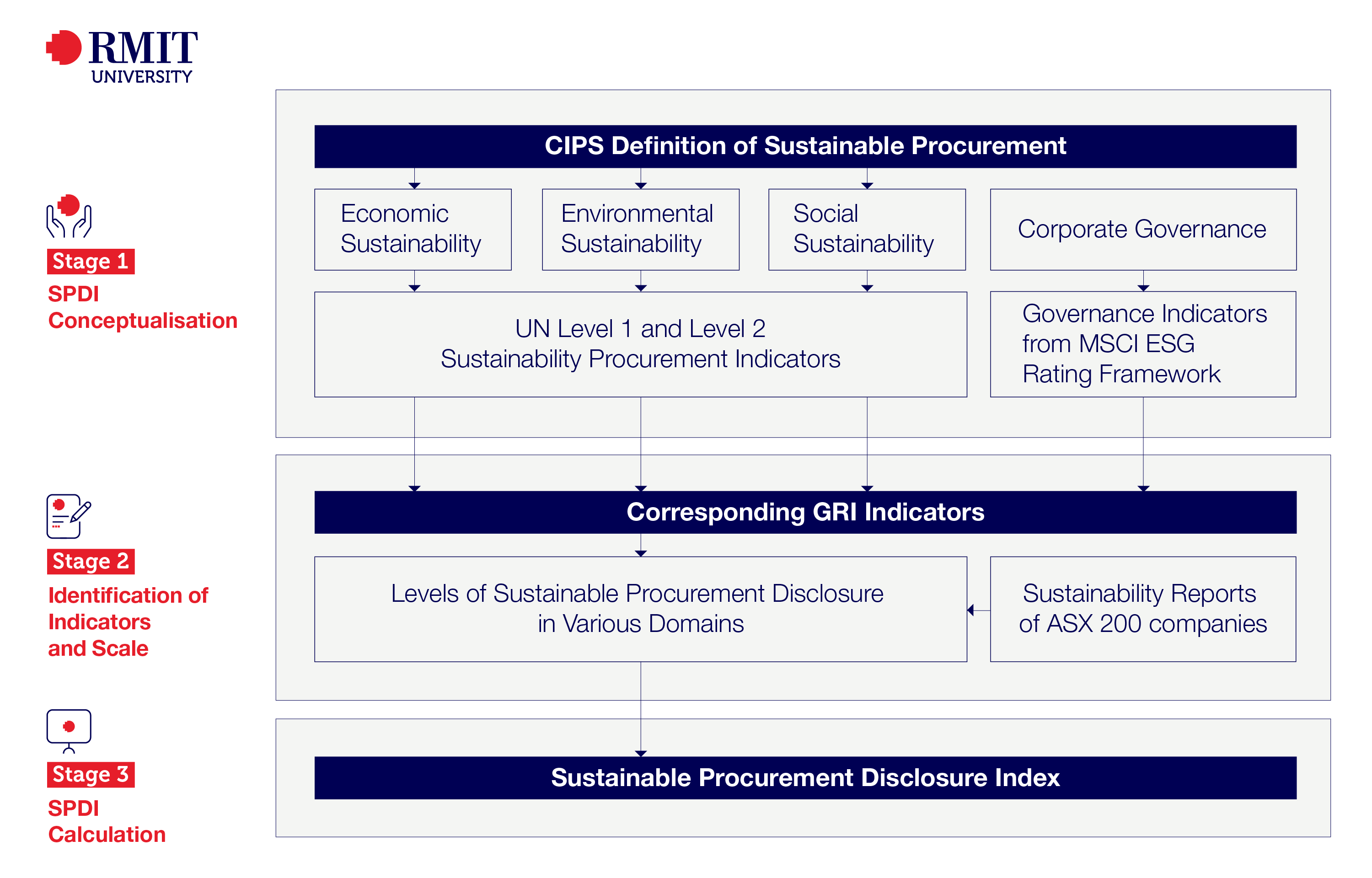Figure 1: The three stages of developing the Sustainable Procurement Disclosure Index (SPDI)
Using 32 GRI indicators of globally accepted ethical norms and standards for business conduct to develop the SPDI, we compared the levels of disclosure of 182 ASX200 companies in their sustainable procurement practices. The findings reveal that the level of disclosure can vary significantly from company to company and from industry to industry. Some of the key findings are given below:
- ASX200 companies tend to report more in governance and environmental aspects.
- ASX200 companies tend to report less in economic and social domains.
- Levels of disclosure have little relationship with firm size, i.e., larger companies do not necessarily disclose more than smaller companies, or vice versa.
- The research team generally found low levels of reporting. This could be attributed to low awareness of GRI indicators, or that reporting is non-mandatory.
- Certain industries, like Materials, disclose more. Other industries, such as Financials, disclose much less.
- The top-performing companies represent a broad cross-section of industries.
- Using the SPDI methodology, 19 ASX200 companies were given a 5-star rating (11%). Five companies were given a 1-star rating.
- The vast majority of ASX200 companies (63%) report on 40%-70% on GRI indicators. This means that there is still a long way to go for businesses to fulfill GRI reporting guidelines.
Why is the Proposed SPDI important?
By reflecting the transparency and quality of disclosure, the proposed RMIT SPDI empowers sustainability-conscious consumers to exert pressure on corporations, encouraging them to choose socially and environmentally responsible suppliers. Consequently, the index can influence consumer purchasing behaviour, potentially impacting a company’s competitiveness or even its survival. Moreover, the index can bring significant benefits to various stakeholders. It serves as a valuable risk management tool, contributes to reducing business operating costs, as well as social and environmental costs. Furthermore, it functions as a mechanism to promote adherence to national regulatory guidelines and ultimately mandatory reporting, build trust among stakeholders, raise public awareness, and foster the adoption of sustainable practices throughout society. Some of the key benefits include the following:
- Facilitates public engagement and awareness regarding the environmental and social implications of purchasing decisions, promoting a more conscious and responsible consumer base.
- Support the United Nations’ Goal No. 12 on Responsible Consumption and Production.
- Enable consumers to rate and compare how well a company discloses its sustainable practices against others.
- Provide a user-friendly benchmark for the public to evaluate major firms’ sustainability practices.
- Encourages companies to adopt and promote responsible and sustainable procurement practices, contributing to positive environmental and social impacts.
- Enhances trust between companies and society, as transparent disclosure builds credibility and demonstrates a commitment to ethical and sustainable business practices.
- Help companies boost their sustainability image and competitiveness by improving their disclosure.
- Stimulates innovation in sustainable practices as companies seek to differentiate themselves and improve their rankings on the disclosure index.
Author:
Associate Professor Charles Lau
Project Lead
Other Team Members: Dr. Aswini Yadlapalli, Dr. Muhammad Abdulrahman, Prof. Prem Chhetri, and Prof. Vinh Thai








